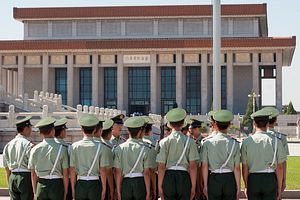In his study Politics (Profile Books), Cambridge academic David Runciman runs through a number of attributes that modern politicians need to have. What, in essence, does this class of professional politicians, of which the modern world has seen a surfeit in recent decades, actually do? His answer, after going through some options, is a disarmingly simple one. In the end, the best politicians can hope for is to be efficient managers of failure. Politicians, for all the bold words when they start out and when they taste sporadic victory, are going to end up in the same place – presiding over failure. This is because the tasks they set out to manage are, in the end, so complex that they defy solutions. The most they can do is avert disaster. They are not here to bring about utopia but to prevent hell.
A cliche of business and political cultures in the United States and, to some extent, in Europe is that they embrace and build on failure. The vast majority of start-up companies fail in the first year or so. The world is full of brilliant ideas that led nowhere. Patents pile up, and gain no revenue because no one wants to use them. For every Steve Jobs or Bill Gates, there are millions who never made it past the first business cycle. And even for the most successful figures, their careers offered plenty of examples of bad choices and initial failures.
For Chinese politicians and business people, the reality of failure poses a specific set of questions. How ready are Chinese leaders (whether in business or government) to face the brute fact that failure is an intrinsic part of any system? One only has to consider the costs of failure for the average provincial leader in China. If they deviate from the commands given them from on high and decide to innovate, then, from time to time, success comes their way. This, in effect, is how the whole reform process from 1978 started – with rural reforms and greater efficiency introduced into the moribund agricultural sector by officials in provinces like Anhui and Sichuan. Because they seemed to work, these reforms were then rolled out elsewhere in the country.
But 1978 cannot be taken as representative. It was a very auspicious moment for China, a time when receptiveness to new ideas was so high because of the dismal state of the country and the desperate need to find a new path. Since then, things have been less straightforward for Chinese innovators. The politicians have had to contend with the treacherous waters of peer criticism and conformity in the Party system. The business people have needed to deal with cut-throat competition, lack of legal protection, and, from time to time, savage political backlashes against them. In view of this, it is remarkable not how little innovation there has been in China, but how much. It is an environment in which, while the rewards for success can be dizzying (look at the all-conquering Jack Ma), failure is so little liked, accepted, or tolerated it is remarkable any one tries new things at all.
Maybe there are face issues here. To boldly come out and say that failure is no bad thing, that failed start-ups and initiatives are just a part of life, and that Silicon Valley in the U.S. is as much a capital of faults as it is of successes is not a popular message in China. Everyone wants to succeed. Perhaps that is why so few do.
For politicians, failure is an even bigger taboo. From time to time, figures like Wen Jiabao in the past, with his criticism of unstable, unsustainable growth, came out and said the unsayable. But they were the exceptions that proved the rule. The Party does not even do a bold, empirical, and public admission of what parts of previous Five Year Programs worked and which did not. It simply announces a new program every five years, with the assumption that the old one was a complete success. Provincial and national leaders usually produce peons of praise to themselves and the Party they belong to. In this context, the Party always wins and makes no mistakes. When things go wrong, it is individuals who are blamed. And in the current highly nervous environment, it would take a brave official to undertake any actions that might expose them to even the possibility of failure.
There is not much likelihood under Xi Jinping that Party officials are going to be willing to launch risky new initiatives any time soon. In 2017, everyone will have an eye on possible promotions or demotions, with the Congress looming at the end of the year. No one will want to jeopardize their career chances. This is a pity. China now stands in a uniquely influential position, and its economy desperately needs to have space to take risks, and try to clear away some of the residue of state control and political interference. In the political system, too, there is a need for innovation — perhaps not along a multi-party track, but at least efforts to introduce more accountability and participation in decision making.
But the fear of failure, and the consequences when failure happens, as it so often must, are very strong. And this is not a recent phenomenon, but one which lies deep in the cultural roots of China itself. As the most innovative and creative leader of modern China once said, “There can be no creation without destruction.” But this is one of the phrases of Mao Zedong that the current leaders of China act like they would prefer the Chinese people to forget.

































